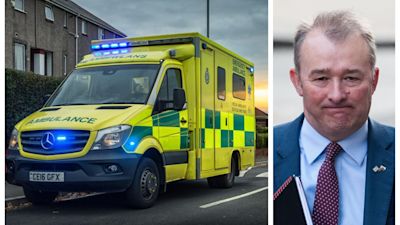Soldiers cannot keep rescuing ambulance service, Welsh Secretary warns

The military can not be depended on to "rescue" the ambulance service in times of need, the Welsh Secretary has said.
Simon Hart told The Telegraph that the Welsh government had to understand that the military was not an “open-ended” resource to ease problems.
The army is currently on its third deployment to support the ambulance service since the pandemic began in March 2020.
They have also helped with the vaccine rollout, delivering PPE and supporting the community testing programme in Merthyr Tydfil.
Defence workers will not operate under blue light conditions and instead cover low priority calls to help free up WAST resources.
It means the ambulance trust can focus on attending life-threatening calls quickly, such as cardiac arrests.
Mr Hart said the Welsh government had to sort out the problems in the ambulance service by the end of November, when the military aid would come to an end.
"The Welsh government must not turn to these requests whenever things become problematic and think 'we can put in a request and soldiers will come to our rescue,'" he said.
"That would be the wrong solution to the longer-term issues.”
“Our point is to say that time may be coming and they need to make the necessary preparations," Mr Hart said.
“We’ll be there for emergencies, for Covid support, but the long-term problems of the ambulance service – and they are long term – will require the Welsh government to resolve.”
In response, the Welsh Government said that it was the Welsh Secretary who drew attention to the availability of the army to step in and help over autumn.
“The Secretary of State for Wales wrote to the Welsh Health Minister on the 13th September drawing our attention to the use of armed forces personnel to assist ambulance services in parts of England," a Welsh government spokesperson said.
"He proactively offered similar support to Wales. We are extremely grateful to the MOD personnel for their assistance which, will be time-limited.”